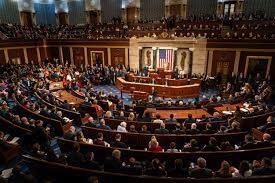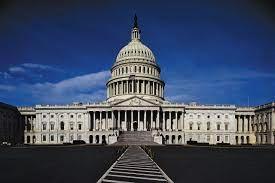 The House has adjourned for a six-week recess and will reconvene in mid-September with limited time to conclude business before the end of the fiscal year. The House should have passed twelve appropriation bills but managed to approve just one for the Department of Veterans’ Affairs and military construction. It is noteworthy that the only appropriations bill passed in July was by a 219-211 vote. This does not auger well for rapid passage in September. Failure to pass the appropriation bills will result in a government shutdown, placing the economy and government functions in jeopardy.
The House has adjourned for a six-week recess and will reconvene in mid-September with limited time to conclude business before the end of the fiscal year. The House should have passed twelve appropriation bills but managed to approve just one for the Department of Veterans’ Affairs and military construction. It is noteworthy that the only appropriations bill passed in July was by a 219-211 vote. This does not auger well for rapid passage in September. Failure to pass the appropriation bills will result in a government shutdown, placing the economy and government functions in jeopardy.
Speaker Kevin McCarthy believes that an effort to engage members to pass eleven appropriations bills and consider other House business during the second half of September will be achievable. Given both intra- and inter-party dissension with conflicting interests including the so-called “culture wars”, passage of spending bills appears problematic.
 The appropriations for the Department of Agriculture and the FDA are especially of concern to the poultry industry. Normally these spending bills are noncontroversial. Considerations extraneous to food production including blocking of racial equity programs, policy over gender-affirming therapy and the sale of oral abortifacients that are irrelevant to agriculture will obviously delay passage of the USDA spending bill and will predispose to a shutdown. Termination of some services may not directly impact farming over a short period. Interruption of essential activities such as control of catastrophic diseases will have serious repercussions. Waterfowl will commence migration in the fall and laboratory services and field control measures will be necessary in the event of outbreaks of avian influenza.
The appropriations for the Department of Agriculture and the FDA are especially of concern to the poultry industry. Normally these spending bills are noncontroversial. Considerations extraneous to food production including blocking of racial equity programs, policy over gender-affirming therapy and the sale of oral abortifacients that are irrelevant to agriculture will obviously delay passage of the USDA spending bill and will predispose to a shutdown. Termination of some services may not directly impact farming over a short period. Interruption of essential activities such as control of catastrophic diseases will have serious repercussions. Waterfowl will commence migration in the fall and laboratory services and field control measures will be necessary in the event of outbreaks of avian influenza.
The 2018 Farm Bill expires on September 30th and the need for an extension appears inevitable. The House Agriculture Committee Chair, Glenn Thompson (R-PA), intended to present a Farm Bill in September but the passage of spending bills will take precedence. Aside from the restraint of a crowded legislative calendar, there is considerable dissension over aspects of the 2023 Farm Bill with conflicting demands from both sides of the aisle but also within the majority party in the House. This does not take into account the wide gulf between House and Senate versions of the Farm Bill of 2023
As with many of my peers growing up in the post WWII years, we were obliged to complete family chores and homework before going out to play. It seemed tough at the time but created a sense of responsibility and commitment to objectives. It is unconscionable that elected Representatives have abandoned their place of work for a six-week recess without having completed their obligation to fund the government and conduct the “peoples business”. This is no time for political posturing and engaging in parochial activities that are intended to favor reelection in November 2024. The most important considerations are the well-being of our nation with economic stability and progress. This can only be achieved by rational decisions and mature interaction under decisive leadership. The American people including our farming community deserve better from the legislative branch of government.